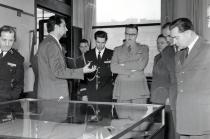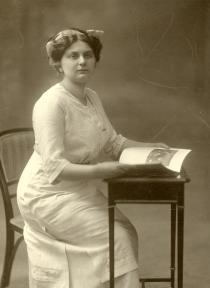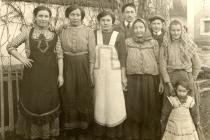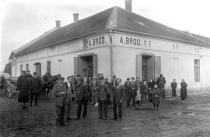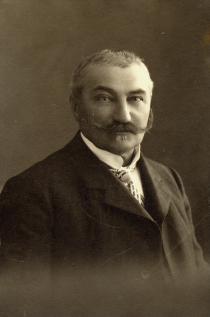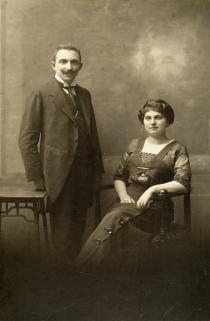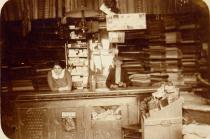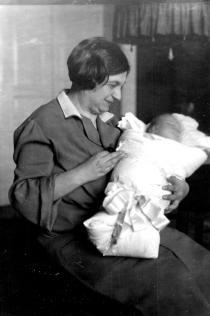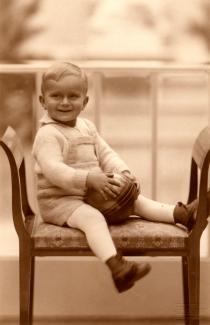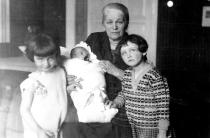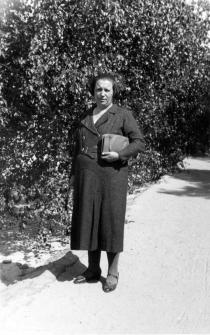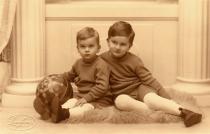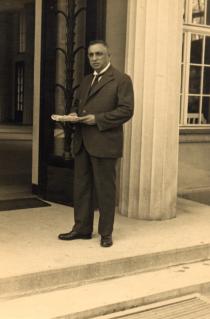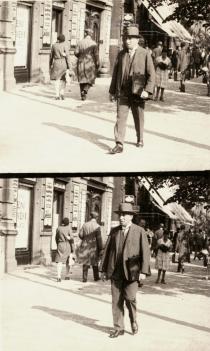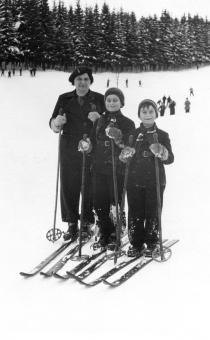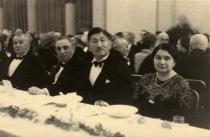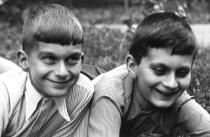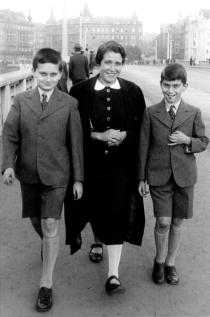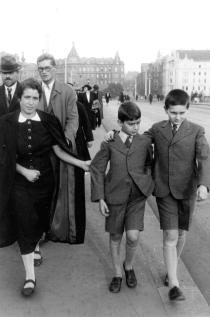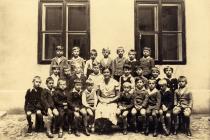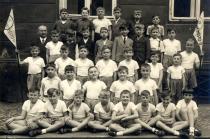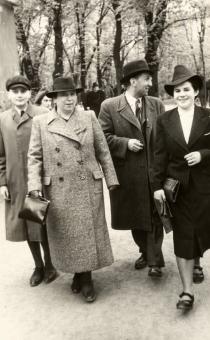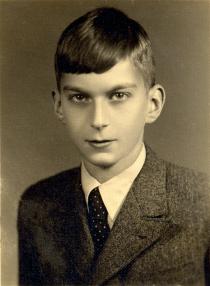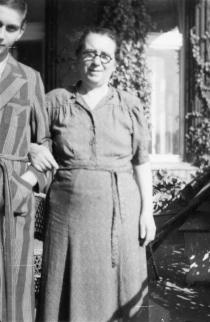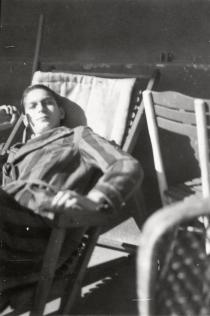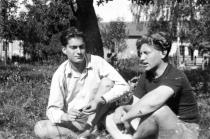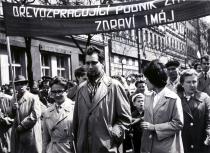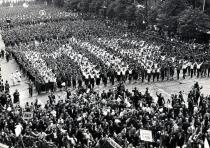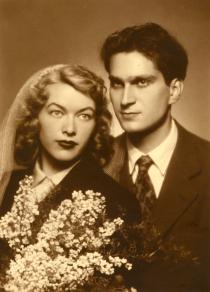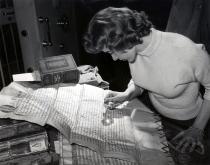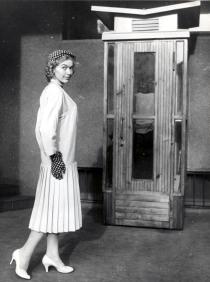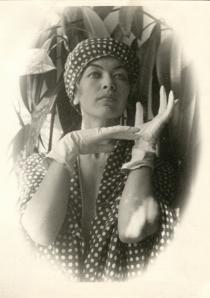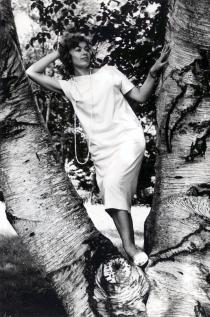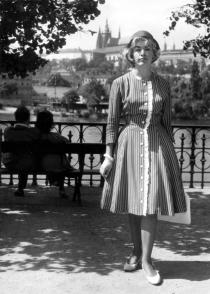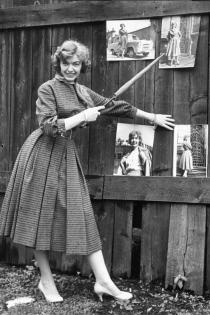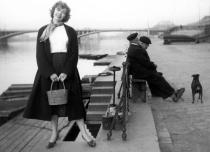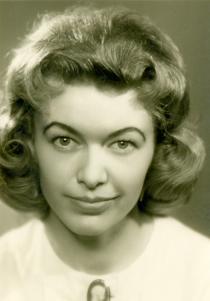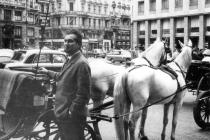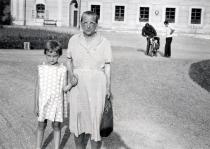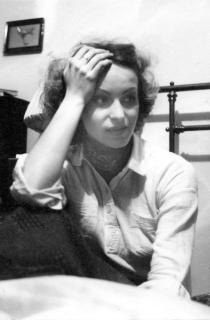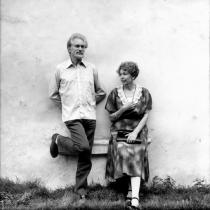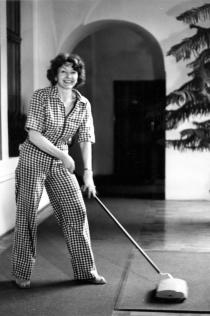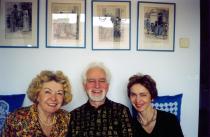These are two photographs of my father, as he's walking along Wenceslaus Square in Prague.
It might have been sometime in the mid-1930s. They were taken by a street photographer, there used to be many of them in Prague.
They would wander the streets and take pictures of people, who could then come to their studio to pick up the picture.
The largest number of them used to always be around the Main Train Station, because when someone arrived in Prague, they of course wanted to have a souvenir of the visit.
Today it's not like that any more, everyone has his own camera. But for example my daughter Sarka still has such a photograph from when she was 6 or 7 years old.
My father was named Arnost Brod and was born on 28 November 1878 in Vrdy-Bucice. I think that his mother tongue was German, but he spoke Czech without any problems.
Until the end of his life he wrote in kurent [also called black-letter script], that pointy German lettering, so even when he was writing a Czech letter, he had sharp edges, he didn't draw arches, so from this I judge that he went to German schools, after all in those days that was normal.
For sure, he only had a high school education, he had no title. His religious inclinations were probably no great shakes. If they had been, he certainly would have led us in that direction, which though didn't happen.
He was never in the army, he didn't even have to join up during World War I, and that was most likely because he was important for the war effort, because he worked in supply.
When my father moved to Prague, that was sometime in the second half of the 1920s, he became a grain wholesaler. He sold and bought wheat from farmers and in Prague he sold it on the commodities exchange.
From time to time, once a week, he went to Caslav on business, he had this big shopping bag and the farmers would bring him eggs, butter, various vegetables...
My father was a somewhat conservative type, who was of course glad that he had sons, because at his age he had no longer hoped that he would have any offspring, so he was very proud, he took care of us, gave us precise orders as to what we could do and what we couldn't.
He checked what time we were going to sleep, checked how we were bathing ourselves. He was a person that, as long as he had the time, took very good care of his family. Unfortunately he had very little time, he was basically already an old person.
When he died at the age of 60, everyone said that he had already been an old man, that his time had come. Today that's nonsense, 60-year-old people are fundamentally very active, but as I say, already when he was 50 he wanted to retire, and didn't do so only because we were born.
Well, so I have him in my memory as a person who of course tried to somehow play with us, but I think that at his age he didn't understand children much any more.

